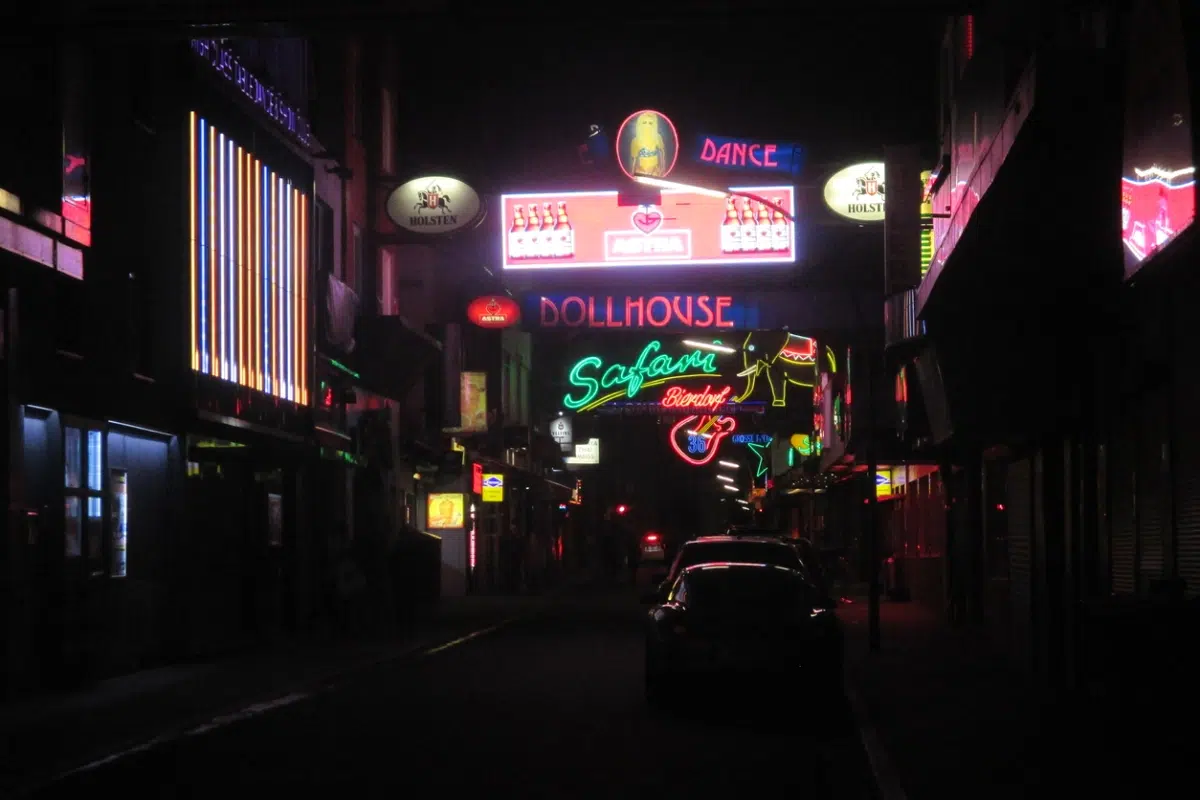Strip clubs have historically hired dancers as independent contractors. In this classification, dancers do not get paychecks from the clubs they work at, instead they work for cash tips and pay the club for their stage time at the end of the night. Their independent contractor status guarantees dancers no money; they do not receive an hourly rate, minimum wage, or overtime. The categorization of strippers as independent contractors denies them basic labor protections that they should receive.
If dancers are independent contractors, all that their employer (a strip club) can control is when the dancer can rent their club space, and how much they charge the dancer for using their club space. Under this model of employment, dancers can control when they show up to their space rental, how much they charge for a dance, and what they want to do. In order to control when a dancer dances at a club, how much the club charges for a dance, and more, a dancer must be classified as an employee. Strip clubs benefit from hiring dancers as independent contractors because they do not have to pay them or comply with many labor laws.
In recent years, dancers have been making headway with legal claims regarding their status in the workplace and the protections the are afforded at work. There has been a dramatic increase in cases filed by strip club dancers over the last 10 years. Many of these cases argue that these dancers are misclassified as independent contractors when they should be classified as employees, and that the classification of dancers as independent contractors leaves them vulnerable to exploitation, abuse, and wage theft.
Of cases that have been brought, plaintiffs have received favorable outcomes. Data from a Bloomberg Law analysis of the over 400 cases brought by strip club dancers between 2005 and 2019, 161 settled, 107 were ongoing, 58 were dismissed by the Plaintiff, 27 resolved in arbitration, 22 received a court judgement in favor of the Plaintiff, and 2 received a court judgement in favor of the Defendant. In 2019, the U.S. Court of Appeals for the Third Circuit upheld a jury verdict stating that the topless dancer Plaintiffs were misclassified as independent contractors rather than employees, and awarding the Plaintiffs a $4.5 million win.
In 2016, Brandi Campbell who worked as a stripper, and who ran a blog called Stripper Labor Rights, was terminated from her job. The club she worked at terminated her when they found out about her blog and her advocacy work. In 2019 she won a case proving that her termination was wrongful, retaliatory, and discriminatory, and in 2020 the NLRB upheld the court ruling. The NLRB decision in the Campbell case made clear that the National Labor Relations Act (NLRA) applies to dancers working in strip clubs. Strippers have the legal right to undertake unionization efforts and management can’t disrupt collective bargaining actions. The Campbell decision is impactful in expanding the possibilities for strippers to organize and fight to improve their working conditions under the law.
Unionization is becoming a popular idea among some strip club dancers. Antonia Crane, who has danced in strip clubs for over 25 years, founded Strippers United, and is leading a charge to unionize strippers throughout the state of California. Strippers United is a “community of empowered strippers who share an uncompromised vision for (stripper) rights, (strippers) vital role in society and (strippers) dignity as professionals. Their goals include creating a safe and equitable work environment for strippers across the U.S.
According to Bloomberg Law, Strip clubs are doing their best to avoid being held legally accountable by dancers by failing to receive service, forcing dancers into private arbitration, failing to respond to requests to arbitration, and filing for bankruptcy when met with legal claims. These stalling tactics often force Plaintiffs to drop their claims, and has resulted in a limited amount of legal precedent set regarding the issue.
The fight for labor rights for strippers is ongoing. The power and protection to unionize is a major victory, as it will allow for collection action and bargaining, and greater power to hold negligent strip clubs accountable.
Lastly, regardless of the employment status, if you are a dancer and are being sexually harassed in the workplace you have rights under the California Fair Employment and Housing Act. In California, strip club dancers have the right to a safe work environment, including one where they are not subjected to sexual harassment.
Avloni Law is in solidarity with the work to create safe and equitable work environments for strippers across the United States. If you are experiencing discrimination, harassment, misclassification, or retaliation from your employer, please reach out to Navruz Avloni to schedule a free consultation. Navruz Avloni is an experienced attorney and advocate, dedicated to expanding labor protections and fighting for healthy and fair work environments for all people. We represent clients across California, with offices in Los Angeles, San Jose, and San Francisco.

